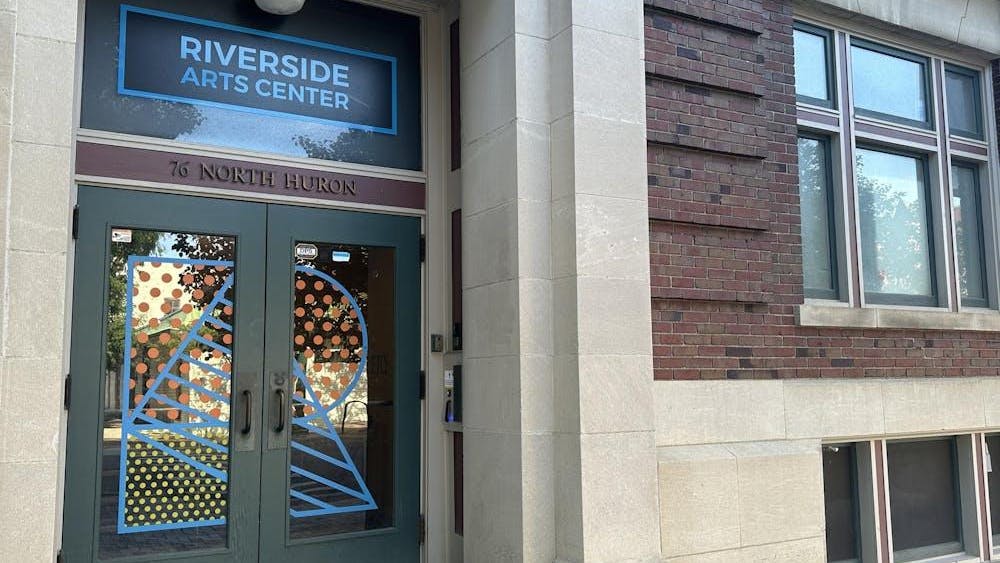After a lengthy list of credentials and honors for various books, including being “one of two writer/speakers to be invited to the U.N.,” Linda Hogan stepped onto the Eastern Michigan University Student Center Auditorium stage.
Hogan’s speech Thursday was one of the events of Native American Heritage Month. Hogan discussed her book “Mean Spirit,” a finalist for the Pulitzer Prize, as well as her poetry and writing styles in general.
Hogan, from Oklahoma and a member of the Chickasaw tribe, began writing when she discovered contemporary poetry. Previously, writing hadn’t been an occupation choice. She was teaching at the time and began “writing poetry on lunch breaks in the woods.” She then sat in on creative writing classes to get into practice.
A major event in the novel’s – originally created as a screenplay – creation was when she met an Osage woman whose family had been connected to the events in the story.
From there she researched the Osage tribe and the troubles it had faced when oil was discovered on its lands – the primary topic of “Mean Spirit.”
“The land was basically useless until they discovered oil,” Hogan said. Because of the discovery of oil, “people couldn’t see the horizon, all they could see were oil wells.”
Widespread exploitation of the Osage then commenced, with white settlers asking for Osage wives as a “plain business proposition.”
She weaves true tales into her story, like that of John Stink, a Native American who was accidentally buried alive at the time only to come out of his grave. Of tales like this, Hogan said, “it’s too much for fiction, nobody would believe that.”
Hogan also discussed the difference between Native and Western cultures, and how to cross the boundary of understanding.
“We have to de-educate ourselves from the Western view to understand traditional environmental knowledge,” she said.
Much of her other writings, such as her novel “Power,” also emphasize history.
“History’s great fiction in a lot of ways,” Hogan said. “[It] is itself creative writing.”
After she finished discussing the novel, Hogan read some of her poetry.
While Hogan’s joy for writing is evident, she still loves teaching. She welcomed questions from the audience after the readings and had a lot of advice for aspiring authors. She emphasized “getting out of your head” to create. She said, “every experience is significant when you look deeply at them.” Several times, she said “you should follow what you want to do,” citing evidence from her friend, a wolf biologist.
Hogan came to EMU primarily through the work of undergrad student Theresa Dark. Dark decided to write a grant for an author to come speak as an honors project. Then the lecture ended up becoming a collaborative effort.
“Campus Life stepped up,” Dark said.
EMUAfter the readings and questions, a reception was held with students milling about and waiting in line to get signings from Hogan.
Undergrad student Lauren Ketola said, “I really liked the poetry” and “I thought it was interesting she wrote as it came to her,” instead of planning everything out.
Hogan currently lives in Oklahoma, and works for her tribe and the Chickasaw nation. In addition to her writing endeavors, she is studying anthropology and archaeology. Her current project is a work comparing Native American and Western astronomy.









